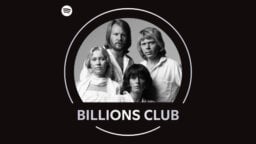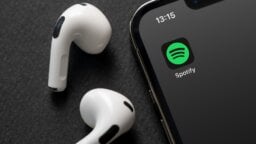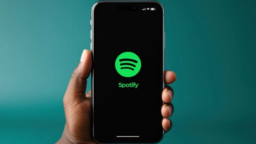Not only do labels and artists have to compete with the nearly 40,000 tracks uploaded to Spotify each day, soon they might have to compete with podcasts popping up within listeners’ personalized music suggestions.
Spotify has started inserting podcasts into personalized playlists, according a report in The Verge. The site says it’s spotted podcast episodes “placed alongside personalized music suggestions in a playlist meant for the drive to work”.
As noted by The Verge, Spotify does not currently have a recommendation tool solely for podcasts and doesn’t offer curated playlists specifically for podcasts either.
The playlist seen by The Verge is called ‘Your Daily Drive’, which sounds very similar to one of the platform’s current personalized playlists, ‘Your Daily Mix’.
This all ties into Spotify’s commitment to step up the personalization of its playlists.
In a blog post published in March about how its “playlist ecosystem is evolving”, the company stated that “some playlists will now be personalized for each listener based on their particular taste. This means that for those specific playlists, no two will be the same”.
Additionally, the fact that the test is related to a playlist intended for the car is also indicative of Spotify’s ambitions to ramp up its in-car entertainment offering.
A Financial Times report in January stated that Spotify is testing an in-car music player, which is being built in partnership with tech firm Flex.
The company is also currently on a recruitment drive for new members of staff with expertise related to in-car product design, according to a job ad spotted by MBW.
The ad states that this person will be responsible for deepening the “relationships between artists and fans by extending Spotify into the car via an embedded experience”.
The latest news about Spotify’s podcast plans follows its reiteration in March that it aspires to become “the world’s leading audio platform” when it announced the acquisition of its third podcasting company, true crime specialist, Parcast.
The Parcast acquisition followed Spotify’s announcement in February that it had bought New York-based podcasting production company Gimlet Media as well as Anchor, whose software “enables anyone to easily create, distribute, and monetize a podcast” for around $300 million.
In a blog piece following the announcement of the Gimlet/Anchor buys, Spotify boss Daniel Ek claimed that “over time, more than 20% of all Spotify listening will be non-music content”.
“Based on radio industry data, we believe it is a safe assumption that, over time, more than 20% of all Spotify listening will be non-music content.”
“Based on radio industry data, we believe it is a safe assumption that, over time, more than 20% of all Spotify listening will be non-music content,” said Ek.
“This means the potential to grow much faster with more original programming — and to differentiate Spotify by playing to what makes us unique — all with the goal of becoming the world’s number one audio platform.”
He also stated: “To really understand [our motivation for spending on podcasts], take the current value of the video industry. Consumers spend roughly the same amount of time on video as they do on audio. Video is about a trillion dollar market. And the music and radio industry is worth around a hundred billion dollars. I always come back to the same question: Are our eyes really worth 10 times more than our ears? I firmly believe this is not the case.”
Spotify ended Q1 2019 (the three months to end of March) with 100m premium subscribers, according to its financial results published earlier this week.Music Business Worldwide





